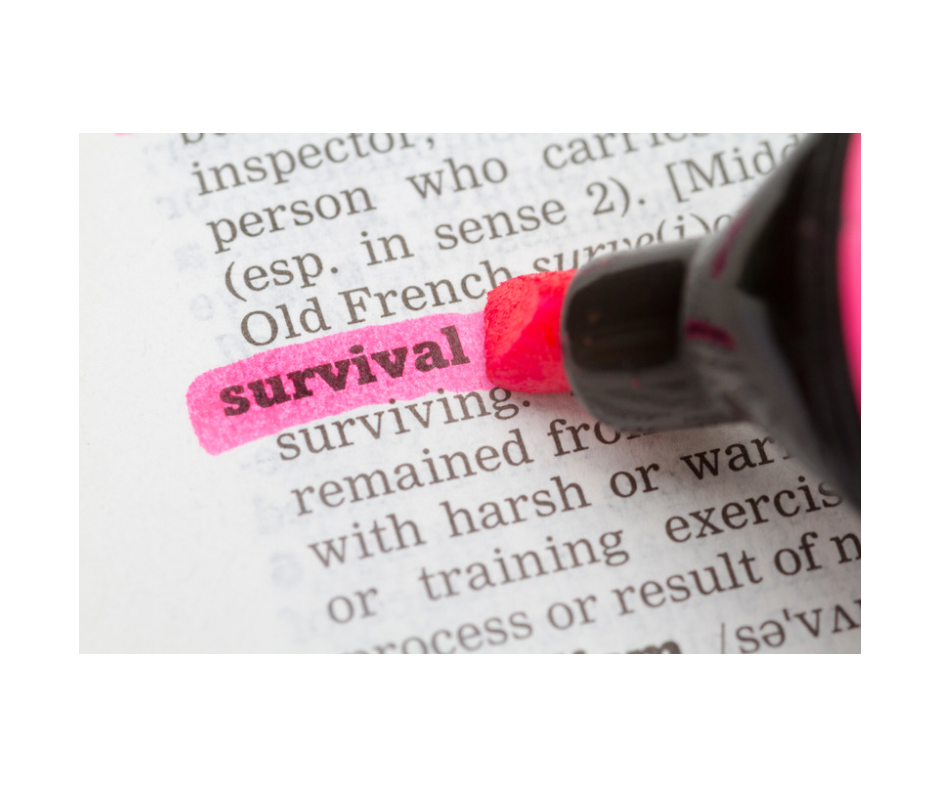Are You Stuck In Survival Mode?
Survival mode also can be called your autopilot mode, where you are just living to survive rather than truly thriving. If you have been a survivor of long term abusive in relationships or in familial relationships, you most likely are living in this state of mind, and are unconsciously aware of it.
I am here to help you realize that you have more potential to your life, and can choose to actually thrive.
During times of crisis, chaos, and traumatic experiences we enter “survival mode.” You might have heard this phrase before; but what does it mean? When we experience stressful events our brains being to function in a different capacity. These experiences can either be real life threats or perceived treats to our safety; our brain does not always differentiate between them, it just reacts.
Signs that you may be living in survival mode:
You are doing everything you can just to get through the day.
You have focused all your energy on the next 24 hours.
You can only consider one task at a time. Everything is URGENT!
You feel utterly alone and helpless. You are the only one who can do the job right, and you must do it yourself.
You push others away without thinking because you don’t have time or energy to deal with them.
You don’t eat properly, sleep is a foreign concept, and your stress level is so high you feel like you will snap any moment.
You rush around like crazy but never get caught up.
You can’t remember the last time you laughed and enjoyed a day.
All you can do is react to each situation that arises.
Lack of focus, poor memory, and impulsive.
SO what does this mean?
It means that our conscious mind, or prefrontal cortex has been dimmed by the trauma that we have survived. Our thinking brain, manages the executive functioning skills of problem solving, organization, emotional regulation, critical thinking, and decision making skills. It’s the part of our brain that might feel more logical than emotional. If our trauma has dimmed this part of our brain, our survival brain begins to brighten and take over.
Our survival brain reacts impulsivity in order to maintain self-preservation; it’s tells us that using the executive functioning skills will take too much time to process the information and that safety cannot be guaranteed. The survival brain is trying to keep us alive, but it can make everything feel much more difficult. Thus, when we begin to have long term symptoms and anxiety.
You may ask, okay how do I fix this? If this sounds like you, first please don’t be alarmed it’s not a place you have to be stuck at forever. I was there for 35 years of my life and still suffer from the residual effects. It’s why I am teaching others how to remove this from their life so they can truly begin to thrive much sooner than I did.
First, it’s time to refocus on your needs and see where you are depleting yourself that you may be unaware of. It’s a process of reorganizing your life so that you can relearn how to be in a healthier state of mind.
If you have or are still in a toxic situation it requires you breaking free to heal, and then teaching the body and the mind to heal to stop living in survival mode. It’s necessary that the body begins to feel safe, as well as teaching the mind that you are safe by thought.
Move your body, by exercise, walking, dancing, or yoga. Just MOVE! Trauma disrupts your body’s natural equilibrium, keeping you in a state of hyperarousal and fear. Exercise can be a great way to release energy, and get some of those feel good endorphins needed for your mental health.
Prioritize self care. Which may include a time for meditation, quiet journaling, breathwork , sleep, rest, and eating well for your body and mind.
Most important, is getting support! You do not have to do this alone. Support may be a mental health therapist, coach, family member, a friend. Anyone that can help you through this, we all need connection.
I hope this article has been helpful, and as always thank you for being here with me,


